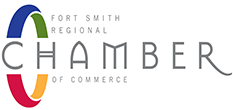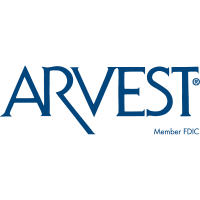Arvest Bank Offers Money Management Tips for College Students
Fort Smith, AR (August 12, 2025) – As college students head back to campus this fall, now is the perfect time for young adults to evaluate and adopt smart management strategies. Arvest is offering tips to help students manage finances while in school.
A 2024 study by Sallie Mae found that 64% of college students say they run out of money before the semester ends. Additionally, the National Association of Student Financial Aid Administrators reports that the average college student graduates with over $37,000 in student loan debt. These figures emphasize why developing strong money habits is crucial.
“College is an exciting time of learning, independence and new experiences, including managing personal finances for the first time,” said Jeannette Pham, Sales Coordinator for Arvest Bank – Fort Smith. “The habits formed during these years can shape a person’s financial future for decades to come.”
Pham shares money management strategies that will help any student, whether a freshman just starting out or a young graduate student trying to make money stretch.
Create a Simple Budget
Begin with what’s coming in – income from jobs, financial aid or parental support – and subtract essential expenses like rent, food and tuition. What’s left is what you can use (or save). Budgeting apps or a basic spreadsheet can help you stay on track and avoid running out of funds mid-semester.
Know the Difference Between Needs and Wants
You may want daily coffee shop runs or the latest tech, but you need essentials like housing, food and transportation. Prioritizing spending can help prevent unnecessary debt and help make sure your funds last.
Take Advantage of Student Discounts
Many restaurants, stores, streaming services and software providers offer discounts for students. A school ID or .edu email address is often all you need to capture these savings.
Avoid Relying on Credit Cards
Unless you can pay the full balance each month, credit cards can lead to high-interest debt. Using cash or a debit card helps ensure you’re spending only what you have.
Set Up a Savings Habit
Even saving just $10 a week can add up. The set-it-and-forget-it approach works well here. Set up an automatic transfer or direct deposit to a savings account so the money is transferred immediately. Developing this habit now will serve you well beyond graduation.
Earn Extra Income
Consider flexible side gigs like tutoring, freelance work, babysitting or reselling textbooks and clothes. Every extra dollar earned is one less you'll need to borrow or charge.
Track Your Spending
Log your purchases using an app or journal. Small daily expenses can add up quickly, and tracking helps you spot and fix overspending early.
Learn from Mistakes
Financial slip-ups are part of the learning process. The goal is to reflect, reset and make better choices next time. Managing money well in college builds confidence and lays the foundation for a healthier financial future.
With more than $27 billion in assets, Arvest is a full-service bank delivering financial solutions to individuals and businesses of all sizes. Since 1961, Arvest has been committed to providing financial solutions that help communities thrive and grow. Today, the bank has more than 200 locations throughout Arkansas, Oklahoma, Kansas and Missouri. Arvest is an Equal Housing Lender and Member FDIC. To learn more, visit arvest.com.
Arvest Bank (Main Branch)
-
Brooke Moore Marketing Specialist
- August 12, 2025
- (479) 573-1100
- Send Email


